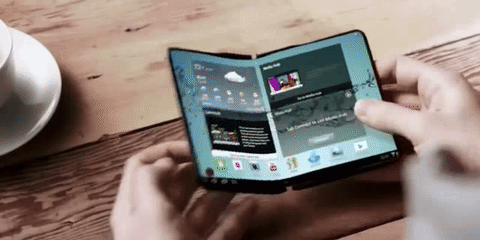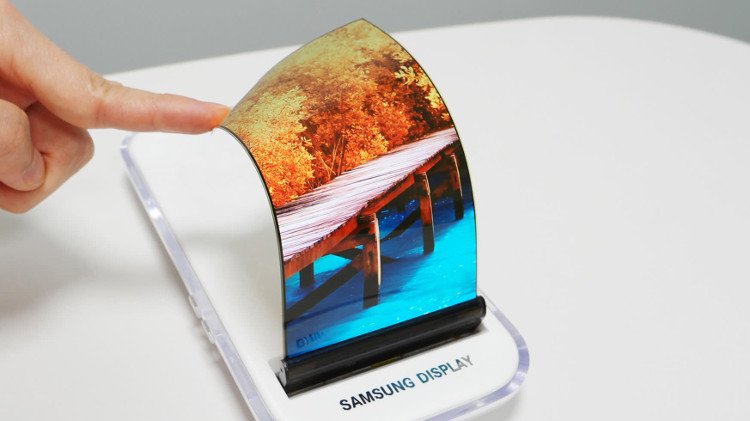It’s been more than six years since Samsung first showed off its vision for the future of smartphone screen technology. Initially called the Flexible OLED display, a prototype made its debut at a time when 1280 x 720 resolution was the status quo in the industry, and the Samsung S3’s 1.4GHz quad-core was an industry leader. Needless to say, the idea of a high-resolution foldable screen seemed like mere science fiction.
After several more years of development, Samsung CEO DJ Koh confirmed to CNBC today that the consumer-ready foldable smartphone will finally be unveiled later this year, sharing that its absence during the past half-decade has been due to “complicated development”. Many smartphone enthusiasts are now speculating that the phone will be unveiled as at the Samsung Developer Conference in November, with a worldwide release in 2019.
A Look At The Future: This Is What Your Phone Will Look Like By 2028
The phone will supposedly fold like a wallet, with one large screen in the center that bends in half, according to rumors. On the front, there may be a small display that indicates basic information such as time, weather, and notifications in a way that could be most similar to HTC’s Dot View Case solution.

A concept version of the technology was demonstrated in a 2014 ad that received over 4 million views, becoming one of the biggest topics in technology during Q4 2013. The main premise of the idea, as marketed in the ad, is to increase screen space without sacrificing portability. If the upcoming consumer release is anything like in the ad, we can expect to see mini-tablet size real estate on a device no larger than 5.5″.
The big question will be if this is a technology that will spur a new era for the smartphone industry. In recent years the battle for innovation has largely been fought in augmentation, from the introduction of quick authentication methods like iPhone Face ID and build quality improvements. If foldable screen technology performs anything like it’s been advertised, it could change the way we think about smartphones.









